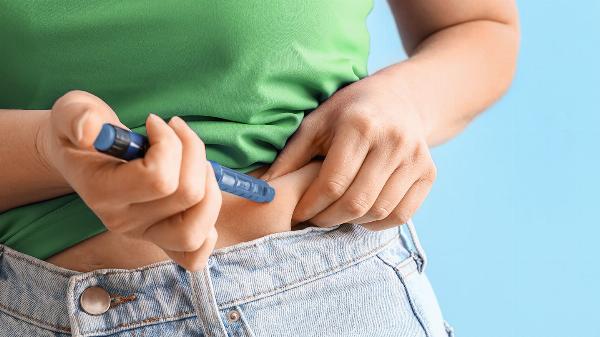Diet and Lifestyle Changes After Kidney Transplant: Advice from Hiranandani Hospital

Strong 8k brings an ultra-HD IPTV experience to your living room and your pocket.
A kidney transplant offers a new lease on life, but it also comes with the responsibility of adapting to new diet and lifestyle changes. If you’ve recently undergone a kidney transplant, you may be wondering how to manage your health and avoid complications. Post-transplant care is crucial, and your choices directly impact the success of the transplant and your overall well-being.
This article will guide you through the diet and lifestyle changes you’ll need to make following your kidney transplant. Hiranandani Hospital, renowned for its kidney care, shares expert advice to ensure you maintain a healthy, balanced lifestyle.
What Diet Should You Follow After A Kidney Transplant?
Diet plays a key role in ensuring the long-term success of your kidney transplant. Following surgery, your immune system is suppressed to prevent rejection of the new kidney, but this can increase your risk for infections or complications. You may be wondering how your diet changes now and what foods are safe.
Post-transplant, you’ll likely need to:
- Eat a balanced diet rich in fruits, vegetables, lean proteins, and whole grains.
- Limit salt intake to maintain healthy blood pressure.
- Avoid foods that may carry bacteria, such as raw or undercooked meat and eggs.
Your diet will also need to be tailored to manage potential side effects of anti-rejection medications, like increased blood sugar and cholesterol levels. This is why it’s essential to work closely with your healthcare team to adjust your diet.
Why Is Hydration Important After Kidney Transplant?
Staying hydrated is essential for kidney health, but after a transplant, it becomes even more critical. The new kidney needs ample fluids to function properly, and dehydration can lead to complications like infections or kidney stones.
Drinking plenty of water (around 8-10 glasses per day) is recommended to keep your kidney healthy. However, you may need to avoid sugary or high-calorie drinks like sodas, as they can contribute to weight gain or spikes in blood sugar.
If you’re unsure how much water is appropriate for you, consult your transplant team. They can provide personalized recommendations based on your unique medical condition.
How Can You Manage Weight Gain After A Kidney Transplant?
Weight gain is a common concern for kidney transplant recipients, often due to anti-rejection medications like steroids, which can increase your appetite. Additionally, after years of restrictive diets during dialysis, you may feel tempted to indulge in foods you previously had to avoid.
However, maintaining a healthy weight is vital for your overall well-being and for preventing conditions like diabetes or high blood pressure, which can damage your new kidney. Focus on:
- Portion control and eating smaller, balanced meals throughout the day.
- Incorporating regular physical activity into your routine.
- Avoiding sugary snacks and opting for healthier alternatives like fruits or nuts.
Managing your weight doesn’t mean giving up on foods you enjoy—it’s about moderation and making healthier choices.
What Types Of Physical Activities Are Recommended?
Exercise is beneficial for kidney transplant recipients, as it improves cardiovascular health, helps manage weight, and boosts your mood. However, it’s important to ease into physical activity after your surgery and follow your doctor’s guidance.
You may start with light exercises like walking or stretching a few weeks post-surgery. Gradually, you can increase the intensity of your workouts, adding in low-impact activities like swimming, cycling, or yoga.
Physical activity also helps counteract some of the side effects of anti-rejection medications, such as weight gain and bone thinning. However, avoid high-contact sports or heavy lifting, as these can put undue strain on your new kidney.
How Can You Protect Your Immune System Post-transplant?
Because you’ll be on immunosuppressants, your immune system will be weakened, making it easier for infections to take hold. This is why post-transplant care includes not only diet and lifestyle adjustments but also measures to safeguard your immune system.
Here’s what you can do to minimize infection risks:
- Practice good hygiene, such as washing your hands regularly.
- Avoid close contact with sick individuals, especially during cold and flu season.
- Stay up to date with recommended vaccines, but consult your doctor before getting any live vaccines.
Your immune system will require extra attention post-transplant, but with careful management, you can reduce the risks of complications.
Where Can You Seek Ongoing Support?
Adjusting to life after a kidney transplant is a journey, and having the right support can make all the difference. Many transplant patients wonder where to find reliable advice and ongoing care.
Hiranandani Hospital offers comprehensive post-transplant care, including:
- Regular check-ups and blood tests to monitor your kidney function.
- Access to dietitians and nutrition experts to help guide your dietary choices.
- Counseling services to address any emotional or psychological challenges you may face.
It’s essential to stay connected with your healthcare team and seek help whenever you feel uncertain about your health or lifestyle choices. Support groups can also provide a community of individuals going through similar experiences, offering emotional support and practical advice.
Conclusion
Adopting the right diet and lifestyle changes after a kidney transplant can make a significant difference in your long-term health. By following the expert advice from Hiranandani Hospital, you’ll be better equipped to manage the challenges and enjoy a healthier, more balanced life. Remember, your healthcare team is always there to guide you through every step, ensuring your new kidney stays strong and functional.
Frequently Asked Questions
1. What Foods Should I Avoid After A Kidney Transplant?
Avoid raw or undercooked foods like sushi, eggs, and meats, as well as unpasteurized dairy products. limit salt and high-fat foods to support kidney health.
2. How Soon Can I Start Exercising After My Kidney Transplant?
You can start light activities like walking a few weeks after surgery, but consult your doctor before beginning any exercise routine.
3. Is Weight Gain Common After A Kidney Transplant?
Yes, weight gain can occur due to medications like steroids, but it can be managed with portion control, regular exercise, and a balanced diet.
4. How Much Water Should I Drink Daily After A Kidney Transplant?
You should aim to drink 8-10 glasses of water daily, but your healthcare team may adjust this based on your specific needs.
5. Can I Get Vaccinated After A Kidney Transplant?
Yes, but consult your doctor before getting any vaccines, especially live vaccines, as your immune system is suppressed after a transplant.
Note: IndiBlogHub features both user-submitted and editorial content. We do not verify third-party contributions. Read our Disclaimer and Privacy Policyfor details.







